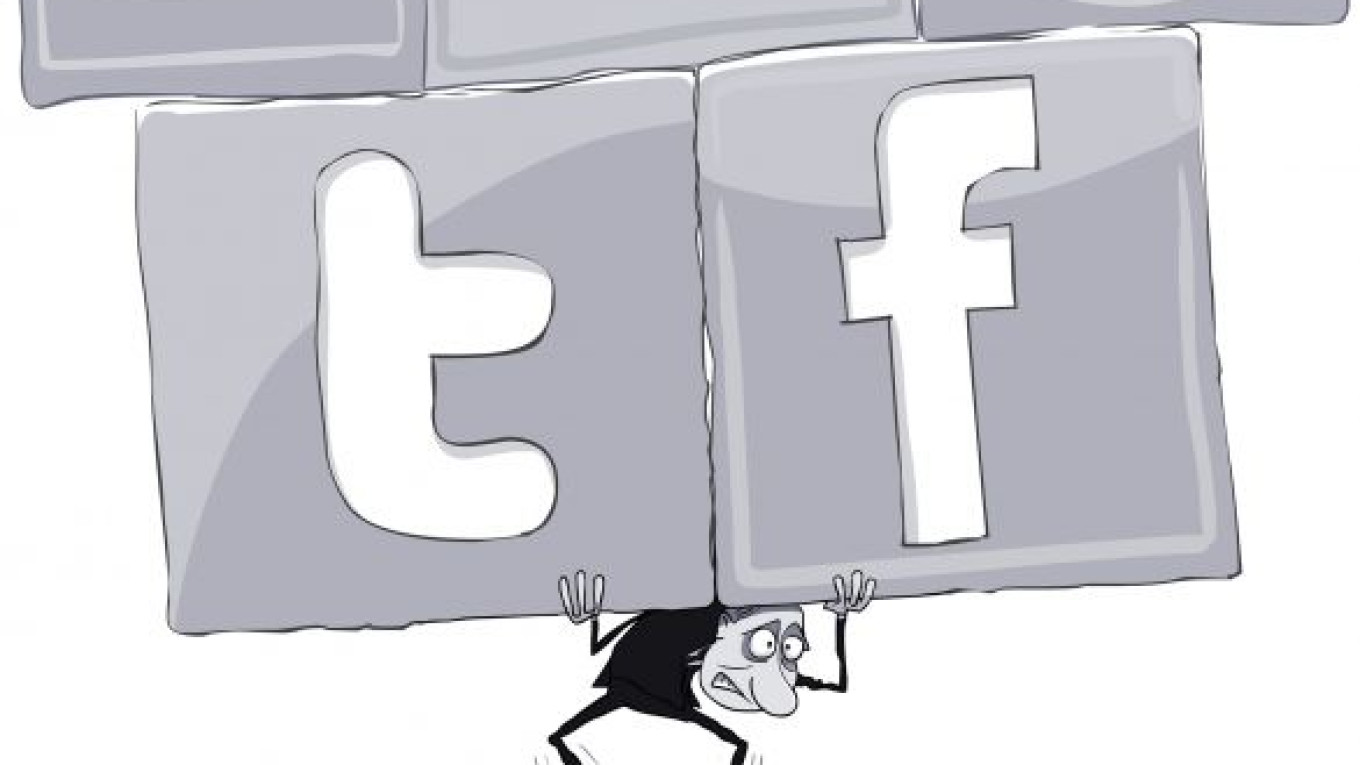After Security Council head Nikolai Patrushev said June 1 that foreign websites fuel protests in Russia, it might be tempting to laugh at the comments of this former head of the Federal Security Service. What is not amusing, however, is that his point of view is shared by many other siloviki who dominate the ruling elite.
Patrushev and his supporters clearly do not understand that these kinds of outlandish statements about sinister foreign plots do more to inspire the protest movement and undermine the government's reputation than all of the blogs and social networks put together. They don't understand because they are still locked in a Cold War mentality.
In the 20 years since the Soviet collapse, President Vladimir Putin and his ruling elite have learned the value of certain aspects of Western civilization. They have purchased homes abroad, placed their money in reliable foreign banks and sent their children to the best universities that Europe and the United States have to offer. At the same time, however, they have not been able to get rid of their KGB mindset. Even while they enjoy the benefits of Western luxury goods and services, they continue to hate the West, consider it an alien and dangerous culture and harbor an almost instinctive fear of a menacing threat from abroad.
The country's political elite would like to build a U.S.-Russian relationship along the lines of the U.S.-Saudi ?Arabia or U.S.-Bahrain relationship in the sense that Washington doesn't interfere in Saudi or Bahraini internal affairs. The Persian gulf monarchs have basically received a carte blanche to deny their citizens basic human rights and to strengthen their autocratic rule.
But this is clearly not the case with Russia. Kremlin doesn't like the West's double standard regarding democratic norms. Why doesn't the United States and Europe complain about the violation of women's rights in the United Arab Emirates, Yemen or Saudi Arabia, for example, while they criticize Moscow for cracking down on the opposition and falsifying elections? Is Russia's oil worse than theirs?
Putin's entire focus since he came to power in 2000 has been to keep himself and his inner circle in power indefinitely. Thus, the punitive force of his vertical power structure has been directed at every opposition activist who challenges his "right" to eternal rule.
Putin's greatest fear is that the protest movement's demands for fair and honest elections could lead to a situation in which he would be pushed out of power, including by his own elite who might turn on him once they understand that the protest tide has become too powerful and that he has become a political liability.
But for the time being, the Putin regime is continuing to battle the opposition. That is why United Russia pushed through the State Duma amendments to a protest law that impose heavy fines and restrictions on protesters. Internet users who disseminate anti-government materials through social networks are also a threat. That is why the Kremlin siloviki have long been itching to follow the example of China and Belarus by tightening the screws on the Internet with censorship walls. It also explains why the authorities have increased pressure on opposition leaders, including the search and seizure of personal property earlier this week from my apartment, as well as the apartments of Alexei Navalny, Sergei Udaltsov and Ksenia Sobchak.
At the same time, the Kremlin demonstrates its total inability to understand the nature of the protest movement. Only the most primitive autocracy fights directly against protesters in the fashion that the Kremlin has done. A democracy does not use these crude, KGB-like methods of intimidation against the opposition. If Putin were truly interested in democratizing and modernizing the country, he would address the causes of the protests and their popular demands, and not simply address the symptoms.
Why are Russians protesting? It is not, as Patrushev suggests, because they spend too much time on the Internet. The reason is obvious: The people are sick and tired of the political monopoly, excessive corruption and social injustice. These are the home-grown problems that threaten national security, not Twitter, Facebook and other social networks based in the United States.
The Kremlin's inability and unwillingness to solve these problems seriously undermines public confidence in the government and only moves the country closer to a point where Putin will lose the confidence of his siloviki elite. Once this happens, he will inevitably lose his hold on power.
Attempts to intimidate protesters or to censor the Internet are like trying to extinguish a fire with kerosene. If the authorities continue this tactic, it will only radicalize the confrontation between society and the Putin regime and might lead to widespread civil disorder across Russia.
Ilya Yashin is a co-chairman of the Solidarity opposition movement.
A Message from The Moscow Times:
Dear readers,
We are facing unprecedented challenges. Russia's Prosecutor General's Office has designated The Moscow Times as an "undesirable" organization, criminalizing our work and putting our staff at risk of prosecution. This follows our earlier unjust labeling as a "foreign agent."
These actions are direct attempts to silence independent journalism in Russia. The authorities claim our work "discredits the decisions of the Russian leadership." We see things differently: we strive to provide accurate, unbiased reporting on Russia.
We, the journalists of The Moscow Times, refuse to be silenced. But to continue our work, we need your help.
Your support, no matter how small, makes a world of difference. If you can, please support us monthly starting from just $2. It's quick to set up, and every contribution makes a significant impact.
By supporting The Moscow Times, you're defending open, independent journalism in the face of repression. Thank you for standing with us.
Remind me later.


